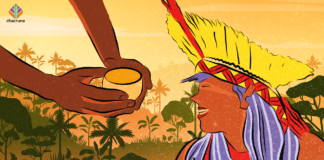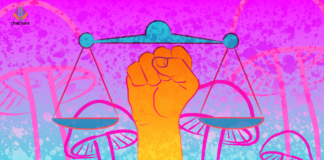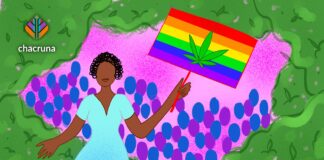(Re)imagining Healing: Lessons from Indigenous Wisdom
Nicoleta Gusac explores integrating Indigenous wisdom into the current psychedelic landscape and modern mental health practices, offering a holistic approach to healing. She challenges individualistic and medicalized paradigms, emphasizing community well-being and the potential of psychedelics as tools for decolonizing consciousness. By examining traditional knowledge
systems, Gusac advocates for a collective and interconnected understanding of health, including cultural, political, and environmental dimensions.
Reflections on Chacruna’s Diversity, Culture, and Social Justice in Psychedelics Course
Jasmine Cumetti reflects on a transformative 10-week course at the Chacruna Institute on psychedelics, diversity, and social justice. She emphasizes the need for systems thinking, centering Indigenous knowledge, and recognizing societal issues within the psychedelic movement. Cumetti also explores allyship and describes how plant medicine ceremonies, particularly with ayahuasca, shifted her perspective from individual healing to collective ancestral healing, fostering a sense of responsibility toward all relations.
Dr. Stephanie Michael Stewart on Ecological Medicine, Women’s Health, and Psychedelic...
Holistic psychiatrist Stephanie Michael Stewart shares her views on the opportunities afforded by psychedelics in the treatment of trauma and in women's health. She also explains how the psychedelic community can continue to improve their inclusion of BIPOC and queer groups and individuals.
Amber Senter on Queer Black Spaces in Cannabis Entrepreneurship, Disco Joints,...
Amber Senter is the cofounder and executive director of Supernova Women. She is working to lower barriers of entry for Black and brown people in the cannabis industry, as well as help give opportunities to folks in underserved communities in the industry. As a member of Oregon's psilocybin regulatory agency advisory board, she is working to fight overregulation in the drug industry.
Ten Tips for Standing in Solidarity with Indigenous People and Plant...
Four leaders in the psychedelic community who work in collaboration with Indigenous partners provide advice on how to work in solidarity with Indigenous groups. They challenge the romanticization of the concept of the "global psychedelic community and urge individuals to avoid developing relationships based on tokenization and non-reciprocity.
On Equity-First Models for Psychedelic Healing
NiCole Buchanan, a clinical psychologist and professor at Michigan State University, spoke to Ali McGhee about the need for equity models in psychedelic healing spaces. Buchanan, whose area of clinical expertise is dealing with complex trauma, asserts that people of color have a legitimate wariness of the medical system due to the systemic injustices that they have experienced. In order to bring these people into psychedelic spaces responsibly, a more equitable process for clinical research that also honors legacy and lineage practitioners must be put into place.
On Racial Trauma, Social Justice, Mentorship, and Psychedelic Healing for People...
Sonya Faber, member of Chacruna's Board of Directors, sits down with Ali McGhee to discuss her experiences as a Black woman in pharmaceutical and psychedelic spaces. Faber touches on topics ranging from the whiteness of the psychology profession to the roll of power in policies related to psychedelics.
Indigenous Reciprocity Initiative of the Americas (IRI) End of Year Report...
Chacruna launched the Indigenous Reciprocity Initiative of the Americas (IRI) in April 2021 as a community-directed biocultural conservation program. Read ahead to find out what the initiative accomplished in 2022, including fundraising, community partnerships, and community advisorships.
Why is Gender-Affirming Care Needed in the Psychedelic Space?
Transgender and gender non-conforming people have long been marginalized within the medical system, and the psychedelic renaissance is no exception. In order to ensure that these individuals have access to psychedelic therapy, steps need to be taken to improve gender-affirming care in psychedelic spaces. This booklet from SoundMind offers a guide for offering trans-affirming care for medical professionals and healers.
Declaration of The 4th Brazilian Indigenous Ayahuasca Conference
The Fourth Indigenous Ayahuasca Conference met in September 2022 in Brazil. At the conference, Indigenous members crafted a letter outlining their opinions and desires concerning Indigenous nations, as well as ayahuasca use and management.














